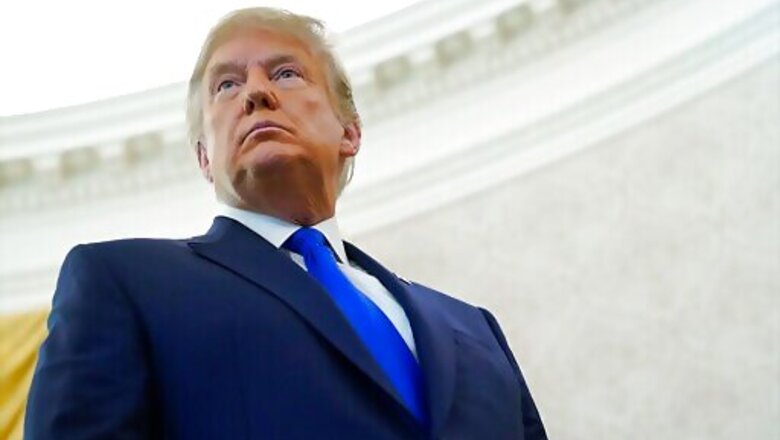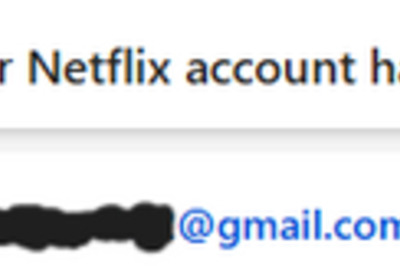
views
WASHINGTON: President Donald Trump has declared that he has absolute power to issue a pardon to himself. Yet the law is much murkier than his confidence suggests.
No president has attempted to pardon himself while in office, so if Trump tries to do so in the next six weeks, he will be venturing into legally untested territory without clear guidance from the Constitution or from judges.
Legal experts are divided on an inherently ambiguous question that was left vague by the Founding Fathers and has never had to be definitively resolved in court.
It’s impossible to anticipate every factual scenario that could come up under a legal provision. This is why we have the courts,” said University of Baltimore law professor Kimberly Wehle.
Talk of a potential pardon comes with Trump facing a swirl of investigations as he prepares to leave office, including New York State inquiries into whether he misled tax authorities, banks or business partners.
In favor of a self-pardon is the broad power the Constitution affords a president when it comes to absolving federal crimes both charged and not-yet charged and the absence of any law or language that explicitly prohibits such an act.
But some scholars say a self-pardon collides with other provisions of the Constitution or even fundamental principles of law. The Constitutions text affording the president power to grant reprieves and pardons for offenses against the United States, except in cases of impeachment” can be read to suggest that the Founding Fathers envisioned some sort of limitations on a presidents pardon power. It could also mean the power is to be used on someone else, not yourself.
You could say, implicit in the definition of a pardon or implicit in the notion of granting a pardon because the Constitution uses the word grant is that its two separate people, said Brian Kalt, a constitutional law professor at Michigan State University. You cant grant something to yourself. You cant pardon yourself.
It would also seem to run afoul of the fundamental principle that no one in this case, a president issuing himself a pardon may serve as a judge in his own case.
That was the reasoning cited in a 1974 opinion from the Justice Departments Office of Legal Counsel, dated days before President Richard Nixons resignation, that said it would seem a president could not pardon himself.
But that same opinion does suggest a potential workaround, envisioning as legally acceptable a scenario in which a president declares himself temporarily unfit for office under the Constitutions 25th Amendment and transfers power to the vice president, who could then issue a pardon. The president could then either resign or resume his duties, the opinion said.
The question of whether Trump will do it, though, is as unsettled as the question of whether he can.
A self-pardon, which Trump has openly mused about, would on one hand be fitting as a final norm-shattering act in a presidency defined by them. But it might also be at odds with his oft-stated conviction that he has done nothing wrong for which he needs to be absolved.
Regardless, the question has occupied Trump’s attention for years.
In June 2018, 13 months into special counsel Robert Mueller’s Russia investigation, Trump tweeted, “As has been stated by numerous legal scholars, I have the absolute right to PARDON myself, but why would I do that when I have done nothing wrong?
Mueller’s report laid out facts that federal prosecutors could potentially use as the basis for an obstruction of justice prosecution, though the odds of that are unclear.
If prosecutors were to bring a case against Trump in spite of any pardon he grants himself, the issue could wind up in court and before a judge for the first time.
Mark Tushnet, a retired Harvard Law School professor, said he doubted any court could overturn a presidential self-pardon, though he said such an act would constitute an abuse of power that would have been abhorrent to the framers of the Constitution.
For them, I believe it would have been unthinkable that the American people would ever elect the kind of person who would pardon himself. Which is why they didnt say anything about the possibility, Tushnet said.
Since presidential pardons don’t cover state crimes, it would seem unlikely a self-pardon would extend in any event to the state investigations Trump is facing. But, Tushnet said, Trump’s lawyers could conceivably try to invoke double-jeopardy arguments to claim that a federal pardon should bar any New York state prosecution based on the same conduct.
On the federal level, a self-pardon obviously handcuffs the Justice Department under President-elect Joe Biden from pursuing any federal case against Trump. But it would also spare Biden from having to face questions about a prosecution that risks distracting from his agenda and keeping Trump in the spotlight.
Ethan Leib, a law professor at Fordham University, said it is a well-established norm that presidents behave in the public interest rather than for personal gain. In this case, he said, it was possible Trump could argue that pardoning himself is motivated by the public interest and a desire to the extent it could pre-empt a divisive prosecution that could upend democracy and trigger civil war, Leib said.
But, he noted, The irony is this particular president does not seem particularly public spirited and public-interest minded.
Disclaimer: This post has been auto-published from an agency feed without any modifications to the text and has not been reviewed by an editor
Read all the Latest News, Breaking News and Coronavirus News here

















Comments
0 comment